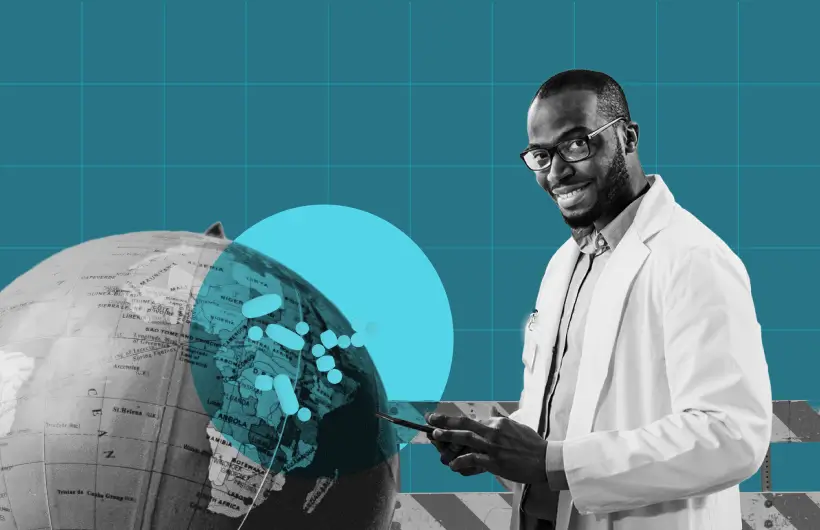In a recent op-ed, published on African Arguments, we made a case for reimagining the future of pharmacy in Africa, focusing on enabling pharmacists play a more impactful frontline role in healthcare delivery that goes beyond dispensing drugs.
Across Africa, community pharmacies are often the first—and sometimes only—accessible points of care, particularly in rural and underserved regions. In Nigeria, for example, pharmacies comprise ~50% of the primary healthcare facilities that cater to 70% of registered care visits.1 Similar trends are seen in Ghana and Cote d’Ivoire, where pharmacies are a vital channel for sexual and reproductive health.2,3
Given Africa’s physician shortage and the ongoing exodus of healthcare professionals, expanding the role of pharmacists can address health needs of local communities and serve as a critical buffer that enables basic patient access.4 While this is already happening globally, as pharmacists’ roles evolve beyond dispensing in several countries, the incorporation of pharmacies in healthcare delivery remains limited across Africa.
Four key actions are crucial to equip the next generation of pharmacists to help deliver care at scale and optimize pharmacies across the continent as key points of primary care delivery:
- Evolved approaches to education
- New compensation and collaboration models
- Creating enabling regulatory frameworks; and
- Embracing local technology-enabled solutions to advance the impact of pharmacy-based care.
Africa’s health system challenges are well-documented and while there is no silver bullet to leapfrog long-running challenges around primary healthcare access, community pharmacies may yet prove to be a vital solution lying in plain sight.
Click here to read the article on the African Arguments (Published October 8, 2024)




